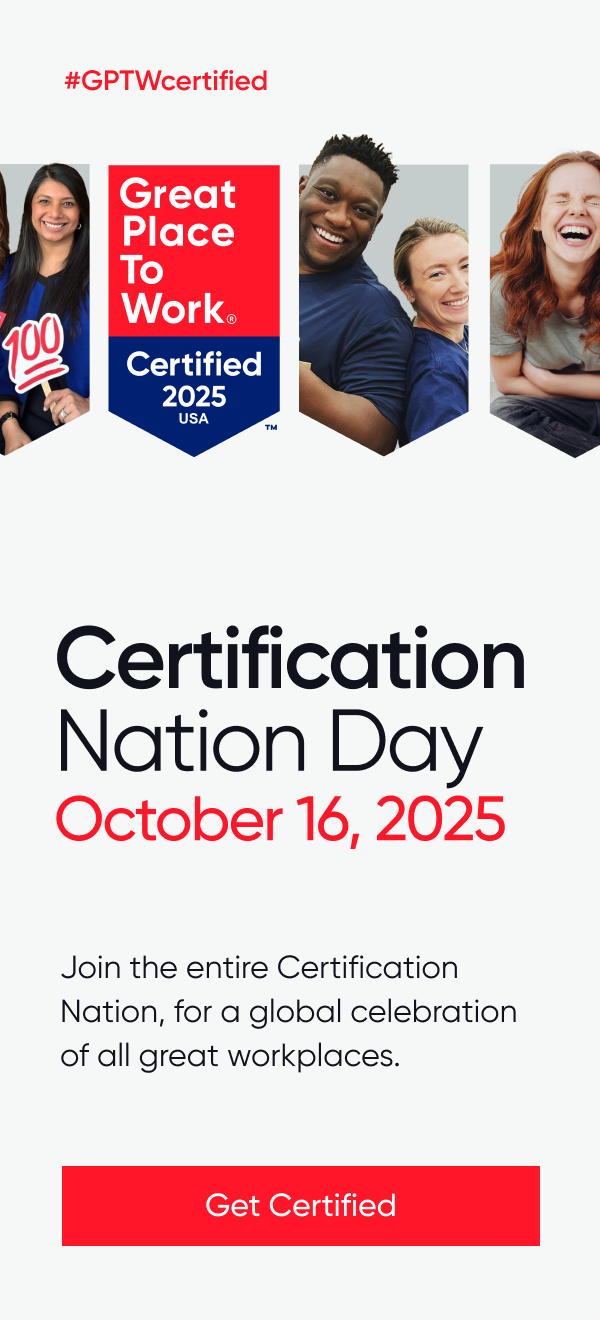
Employee Listening, High-trust leadership, Speaking
Here’s what employees need from their leaders to navigate uncertainty and create workplace stability.
The U.S. presidential election is just one of 65 global elections in 2024 that promise to have a significant impact on the lives of employees.
Just how big of an impact is election season having on workers? One in three workers say they believe the election will affect their careers. Nearly half (45%) of employees say their employers’ or colleagues’ political opinions have made them not want to go to the office.
That doesn’t mean that employers should completely avoid the topic.
Promoting civic engagement and reminding employees of their voting rights has potential benefits for business leaders. Employees have been clear about wanting their company to share their values, and say in surveys that they would quit their job if their organization took a political stance with which they did not agree.
For great workplaces, the key is to know when and how to get involved.
Our experience working with companies on the Fortune 100 Best Companies to Work For® list reveals three important lessons for communicating effectively with employees during challenging times.
1. Determine the “tipping point” for taking action
Establish clear criteria for the business about when the organization will address an issue like an election. Bring in your employee resource groups (ERGs) to offer alternative perspectives and ensure that leaders don’t overlook important employee experiences.
Make sure that leaders at all levels of the organization are trained and given resources to have compassionate conversations with employees. Consider creating action guides, or leveraging peer-to-peer mentoring to help leaders prepare for difficult conversations.
Empowering middle managers is essential. Frontline leaders often have the most direct contact with employees and therefore have more of an impact on trust during uncertain times.
2. Match your message to your audience
The needs of leaders are not the same as the needs of frontline workers or individual contributors. Remote employees need a different level of engagement compared with employees who report to the workplace every day. Global workforces are comprised of many different local experiences, and great workplaces find a way to meet individual employees where they are.
When addressing anxiety around disruptive global events, focus your message on the things that won’t change for employees, such as your company values or available support resources. Be honest about what you don’t know but offer certainty where you can.
3. Build your message on core company values
Great workplaces have a set of guiding principles and behaviors that shape expectations for employees and responsibilities for leaders. When addressing external news events, start by emphasizing these values and how they drive your decisions to engage (or not) with a particular topic.
Reaffirm how the company will support employees and celebrate how colleagues are supporting each other. Remind employees of the resources available through their benefits or employee assistance plans — even when there is no crisis on the horizon. By consistently demonstrating care for employees, leaders can send a signal that their support and engagement are constant, not reactionary.
Do your homework
Here are six questions you can ask before communicating with employees to investigate whether you are ready to speak up on a topic:
- Does this issue align with our core values and mission?
- How does this issue affect our employees, customers, and stakeholders?
- Who within our organization has the credibility and relevant expertise to speak on this topic?
- What are the potential long-term impacts of making a public statement or taking action?
- Is this the right moment to address this issue, or would it be more effective to address the topic in a different context?
When leaders engage thoughtfully, they build trust and boost morale across the organization. Reducing uncertainty improves employees’ psychological and emotional well-being, and clearly articulating shared values helps every employee feel like they belong.










